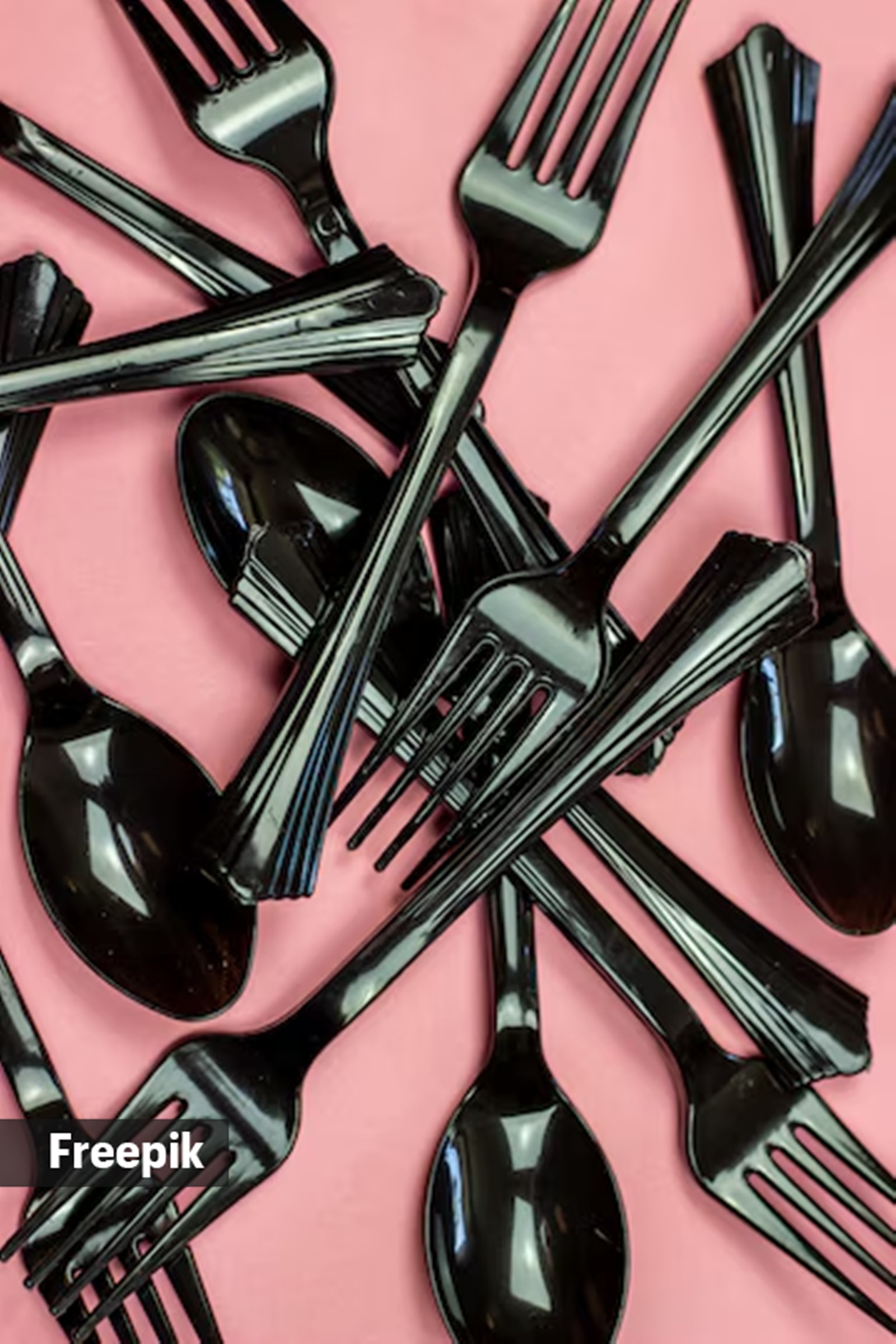Are you guilty of using black plastic spatulas and utensils for cooking? While they make cooking easy for us, there could be potentially devastating implications on our health if used regularly.
In a reel posted on Instagram, content creator and celebrity longevity expert, Kashif Khan, warns that black plastic spatulas contain carbon black, which has toxic polycyclic aromatic hydrocarbons (PAHs) that can seep into food during high-heat cooking. “These compounds can leach into food during high-heat cooking and have been linked to health risks such as respiratory issues, organ damage, and an increased risk of cancer,” he writes.
Agreeing, consultant dietician and diabetes educator Kanikka Malhotra says, “I’m often asked about the safety of cooking utensils. Black plastic utensils raise concerns due to the potential leaching of polycyclic aromatic hydrocarbons (PAHs) during cooking.”
How do PAHs from black plastic utensils leach into food?
The leaching of PAHs from black plastic utensils into food, Malhotra expresses, is a concern, especially during high-heat cooking. Here’s how it happens:
Heat: High temperatures increase the movement of moleculescausing PAHs to migrate from the plastic into food.
Fatty foods: PAHs are lipophilic, meaning they dissolve more readily in fats. Cooking fatty foods with black plastic utensils enhances leaching.
Length of contact: The longer utensils are in contact with hot food, the greater the potential for leaching.
High-risk cooking methods: Cooking methods that involve high heat and prolonged contact with utensils pose the highest risk. This includes frying because the combination of high oil temperature and long cooking time significantly increases PAH leaching.

Specific health risks associated with exposure to polycyclic aromatic hydrocarbons (PAHs) from black plastic utensils
Malhotra says that PAHs are probable carcinogens that may put one at the risk of getting cancer. This means long-term exposure significantly increases the risk of developing various cancersincluding lung cancer, colorectal cancer and breast cancer.
PAHs are not readily broken down by the body and can accumulate in organs over time. This accumulation can lead to liver damage as they can impair its normal function, hindering its ability to detoxify the body. “Accumulated PAHs can also strain the kidneys, potentially leading to kidney dysfunction. Additionally, studies suggest PAH exposure can disrupt hormonal balance and fertility in both men and women,” she conveys.
While less studied compared to other health risks, Malhotra informs, PAH exposure can irritate the airways and exacerbate existing respiratory conditions like asthma. This is especially concerning for individuals already struggling with breathing difficulties. These are potential risks associated with long-term, regular use of black plastic utensils. The severity of the effects depends on various factors like frequency, duration of exposure, and individual health. However, it’s crucial to minimise exposure to these potential toxins for overall health.
Alternative utensils recommended as safer options for cooking
To minimise health risks, Malhotra advices opting for safer utensils such as:
Stainless steel: This utensil is durable, non-leaching, and widely available.
Silicone: Heat-resistant and inert, silicone utensils are the ideal choice for cooking. However, choose food-grade silicone as they will last longer.
Wooden utensils: These are natural and generally safe, but avoid using them for vigorous stirring or high-heat cooking.




